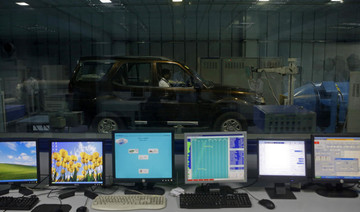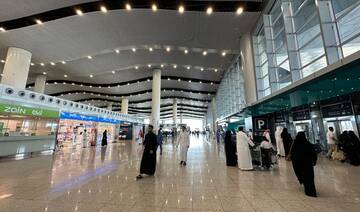NEW DELHI: Several of India's most popular car models, including the famously small Tata Nano, crumpled in independent crash tests in ways that would likely lead to fatality or serious injury, a global car safety watchdog said Friday.
The results are an indictment of the auto industry in India, which lacks adequate safety standards, said David Ward, head of the London car-safety watchdog Global NCAP, which performed the crash tests. India has some of the deadliest roads in the world.
Drivers should be "educated and protected by regulation, but that's not happening in India," said Ward.
India's growing middle class, anxious to buy new cars, has helped fuel a booming auto industry while demanding little in terms of safety. Last year India produced 3.2 million cars, nearly twice the 1.7 million manufactured in the 2008 fiscal year. For the bulk of those sold within India, air bags and rear passenger seat belts were optional, and none was required to be tested for its ability to withstand a collision.
The lack of safety features, combined with reckless driving and shoddy roads, has helped give India a road death rate that is more than six times as high as that of the US and nearly three times China's rate, according to the World Health Organization's 2013 road safety report on the number of deaths compared with the size of a country's car fleet.
Seen another way, one in 10 people killed in a road accident worldwide is Indian.
Four of five small cars popular on the Indian market last year — including the Tata Nano, the best-selling Maruti Suzuki Alto 800 and the Hyundai i10 — failed independent crash tests recently performed by Global NCAP. The findings were not unlike what safety assessors found in Brazil and Mexico last year.
Automakers said the issue of car safety is complex, involving not just passenger safety, but also the safety of those outside the car. They said that means cars need to handle well, with good steering and brake systems while drivers must be educated about the rules of the road, and roads should be in good condition.
These are all challenges in India, where roads are often unpaved and pockmarked by ditches. City streets frequently crumble under heavy traffic, monsoon rains and hot sun. The minimal fines imposed for speeding mean limits are often flouted, with drivers peeling around corners and honking at cows, bullock carts, cyclists or anything else in their way.
Tim Leverton, head of Research and Development for Tata Motors, said Tata is looking again at the Nano's structure for ways to improve its strength, after already adding power steering and improving the car's dynamics.
In the Indian tests, only the Volkswagon Polo's 2014 model had air bags, which were added after the earlier model failed the crash test. Volkswagon said the air bags, as well as anti-lock brakes, would become standard from Feb. 1 along with a 2.7 percent price increase to offset the costs.
"We are proud to be leading the cause of driver safety," Arvind Saxena, the managing director of Volkswagen's Indian passenger car business, said in a statement.
India's biggest carmaker, Maruti Suzuki, did not respond to calls for comment.
The Polo and the Ford Figo were the only two cars to maintain their structures in a 64-kph collision, while the other three crumpled at a slower speed of 56 kph in ways that would likely lead to fatality or serious injury even with air bags.
All five cars chosen were standard, entry-level models, the sort a working class family might choose as their first car, rather than more expensive versions with additional features. About 80 percent of the cars sold in India have price tags of under $8,000.
Indian cars fail safety test, says global watchdog
Indian cars fail safety test, says global watchdog

Operational challenges bring Riyadh Airport to a near standstill

- Airlines issue statements, while sources tell Arab News rain is to blame
RIYADH: Thousands of passengers travelling to and from King Khalid International Airport in Riyadh were left stranded as major airlines struggled to offer alternative flights following a slew of cancellations and delays.
Saudia and flyadeal were among the aviation firms who faced difficulties, with the two airlines putting out statements blaming temporary operational challenges for the issues.
A statement from the airport on its official X account urged travelers to contact airlines directly before heading to the aviation hub to verify the updated status and timing of their flights.
The statement said: “King Khalid International Airport would like to inform you that, due to the concurrence of a number of operational factors over the past two days —including several flights diverting from other airports to King Khalid International Airport, in addition to scheduled maintenance works within the fuel supply system — this has resulted in an impact on the schedules of some flights, including the delay or cancellation of a number of flights operated by certain airlines.”
The airport added that operational teams are working “around the clock in close coordination with our airline partners and relevant stakeholders to address developments and restore operational regularity as soon as possible”, while taking all necessary measures to minimize any impact on the passenger experience.
Airport sources told Arab News that the issue has to do with the heavy rain Riyadh experienced earlier on Friday. Water apparently got into the fuel tankers supposed to refuel jets before they fly, and then several airlines struggled to re-schedule passengers.
It its own statement on X, Saudia said: “Affected guests are being contacted through various communication chanels, with all ticket changes processed at no additional cost.”
Arab News reached out to Saudia for further information.
Also in a post on X, flyadeal said any of it passengers impacted by the disruption “will be notified directly by emails and SMS with rebooking and support options.”














